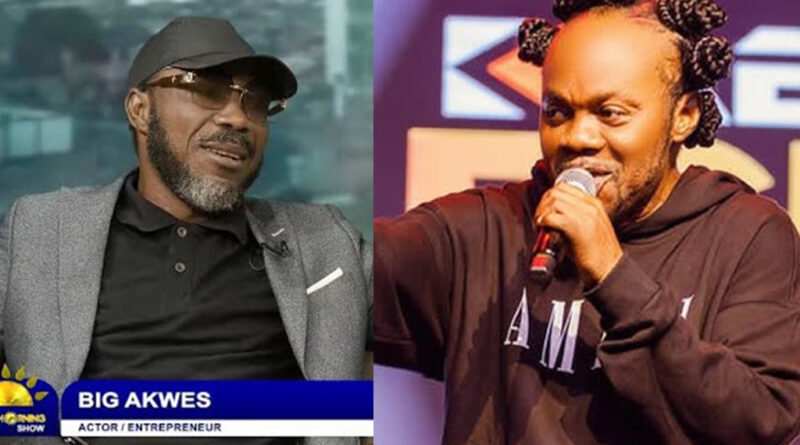Im Happy Daddy Lumba is Dead-Big Akwes
In moments of national mourning, words carry more weight. That’s why when Kumawood actor Big Akwes made remarks on live radio expressing “relief” at the passing of highlife legend Daddy Lumba, the reaction was immediate — and fierce. Grief, after all, demands tenderness, and what he offered instead felt jarring.

During an interview with Obatanpa FM, Big Akwes didn’t shy away from painting a picture of prolonged suffering. According to him, the late musician had battled serious health challenges, including a spinal condition that allegedly left him in a wheelchair for nearly three years. For the actor, Daddy Lumba’s death wasn’t just an end — it was, as he framed it, a kind of liberation.
But that’s where the sentiment crossed a line. The choice of words — particularly the admission that he was “happy” about the news — struck many as inappropriate, no matter the context.
Yes, we’ve seen this tension before. Public figures often walk a fine line when discussing the lives (and especially the deaths) of cultural icons. One part of the audience wants truth. Another, reverence. But in this case, the timing and tone made the difference. Big Akwes may have aimed for compassion, but what landed was discomfort.
And yet, there’s a more complex thread beneath the outrage. Many Ghanaians are well aware of Daddy Lumba’s long battle with illness. The music legend, born Charles Kwadwo Fosu, had largely withdrawn from public life in recent years. There were murmurs of health complications, and close associates have occasionally alluded to the toll it had taken on him.
Even Big Akwes’ anecdote about a recent funeral invitation — where Daddy Lumba was expected but too unwell to attend — reinforces the point. There’s some truth in his narrative. The problem is not necessarily what he said, but how he said it. Expressing relief at someone’s death, even with compassion behind it, requires a level of care and emotional intelligence that was missing in that moment.
As news of the interview circulated online, responses were mixed — but largely critical. Some defended the actor’s underlying message, arguing that few would wish prolonged suffering on someone they admire. But others couldn’t look past the blunt delivery.
The backlash reflects more than hurt feelings. It taps into a broader expectation of public decorum, especially when dealing with a figure as beloved as Daddy Lumba — a man whose music has soundtracked weddings, heartbreaks, and Sunday mornings across generations. When someone like that dies, the public isn’t just mourning the person — they’re mourning parts of themselves.
So, what do we make of this? Was it a case of poor phrasing from a well-meaning peer? Or a careless comment at the worst possible time?
Either way, the lesson is simple but essential: the way we speak about the dead matters. Especially when the grief is fresh. Especially when the person we’re speaking about means so much to so many.




